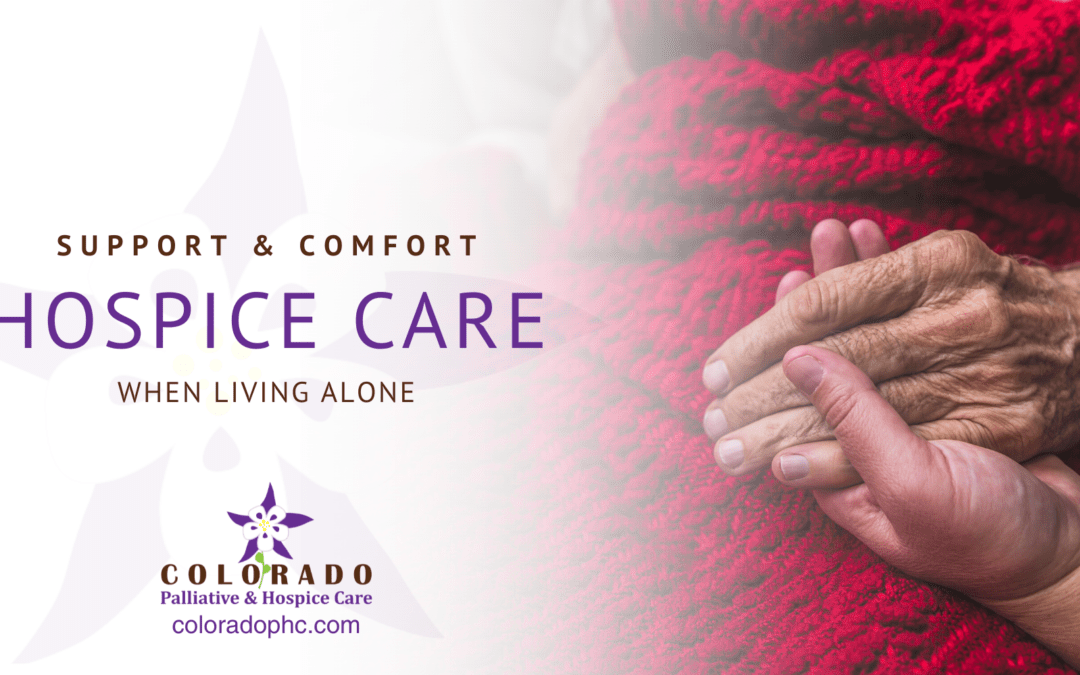Facing the challenges of illness and becoming bed-bound can feel daunting, especially when you live alone without the support of family or friends. In such moments, it is completely normal to wonder how you will navigate the complexities of your care.
Hospice care aims to provide solace and support during these difficult times, offering a helping hand and a compassionate presence when you need it the most. Let us explore how hospice care can provide comfort, reassurance, and enhanced quality of life, even during the most challenging circumstances.
Embracing Compassionate Support
Hospice care is built upon the foundation of compassion and understanding, recognizing that everyone deserves to receive dignified and comprehensive care, regardless of their circumstances. When you live alone and become bed-bound due to an illness, your hospice team becomes an extended family, offering the support and care you need throughout your journey.
A Multidisciplinary Approach to Care
Your hospice team consists of a dedicated group of professionals, including doctors, nurses, social workers, chaplains, and other specialists. They work collaboratively to meet your physical, emotional, and spiritual needs. By creating a personalized care plan tailored to your unique situation and preferences, your hospice team will address every aspect of your well-being, providing comfort and relief.
Medical Care and Symptom Management
When you are bed-bound due to an illness, medical care takes on a whole new level of importance. Working closely with your healthcare provider, the hospice team will ensure that your symptoms are managed effectively. They will collaborate with your doctor to establish a comprehensive care plan, providing medications, therapies, and other necessary interventions to keep you as comfortable as possible. The goal is always to enhance your quality of life.
Emotional and Social Support
Living alone without support or family can be emotionally demanding, especially when you are bed-bound due to an illness. Hospice care recognizes the importance of emotional and social well-being and provides the necessary support. Social workers are available to help you navigate by assisting you in the following ways:
- Navigating emotional complexities.
- Providing counseling.
- Providing companionship.
- Connecting you to community resources for feelings of loneliness.
- Connecting you to support groups to offer a listening ear.
Assistance with Daily Activities
When illness confines you to bed, even the simplest daily activities can become difficult. Hospice care offers assistance with various aspects of daily living, helping you maintain comfort and dignity. Skilled caregivers and volunteers can provide support with tasks such as:
- Bathing
- Grooming
- Medication management
- Meal preparation
Their presence ensures that you can focus on what truly matters – finding peace, cherishing moments, and being surrounded by compassion.
Finding Solace in Compassionate Care
Hospice care is more than just medical support; it is about finding solace in compassionate care. Living alone with no support or family can feel overwhelming, but hospice care provides a network of caring individuals who are committed to easing your burden and enhancing your well-being. They will be there for you, providing comfort, companionship, and the presence of a listening ear.
Reach Out for Support and Find Your Hospice Family
If you are living alone, facing an illness, and becoming bed-bound, know that you do not have to face these challenges alone. Hospice care offers a holistic approach to care, ensuring that your physical, emotional, and spiritual needs are met. Reach out to a hospice provider to learn more about the compassionate support that awaits you. You deserve to embrace comfort, solace, and enhanced quality of life, regardless of your circumstances.
In the face of serious illness, it’s natural to have questions about when and if you are eligible for hospice support. Please read our article on hospice eligibility for more information.
Did you know? Hospice patients, who are admitted early, live an average of 29 days longer, in more comfort, and have a higher quality of life? Read more about the benefits of early admission.
Need help? Contact us at Denver (303) 727-5709, Front Range (720) 545-0800, or Colorado Springs (719) 419-5595.

